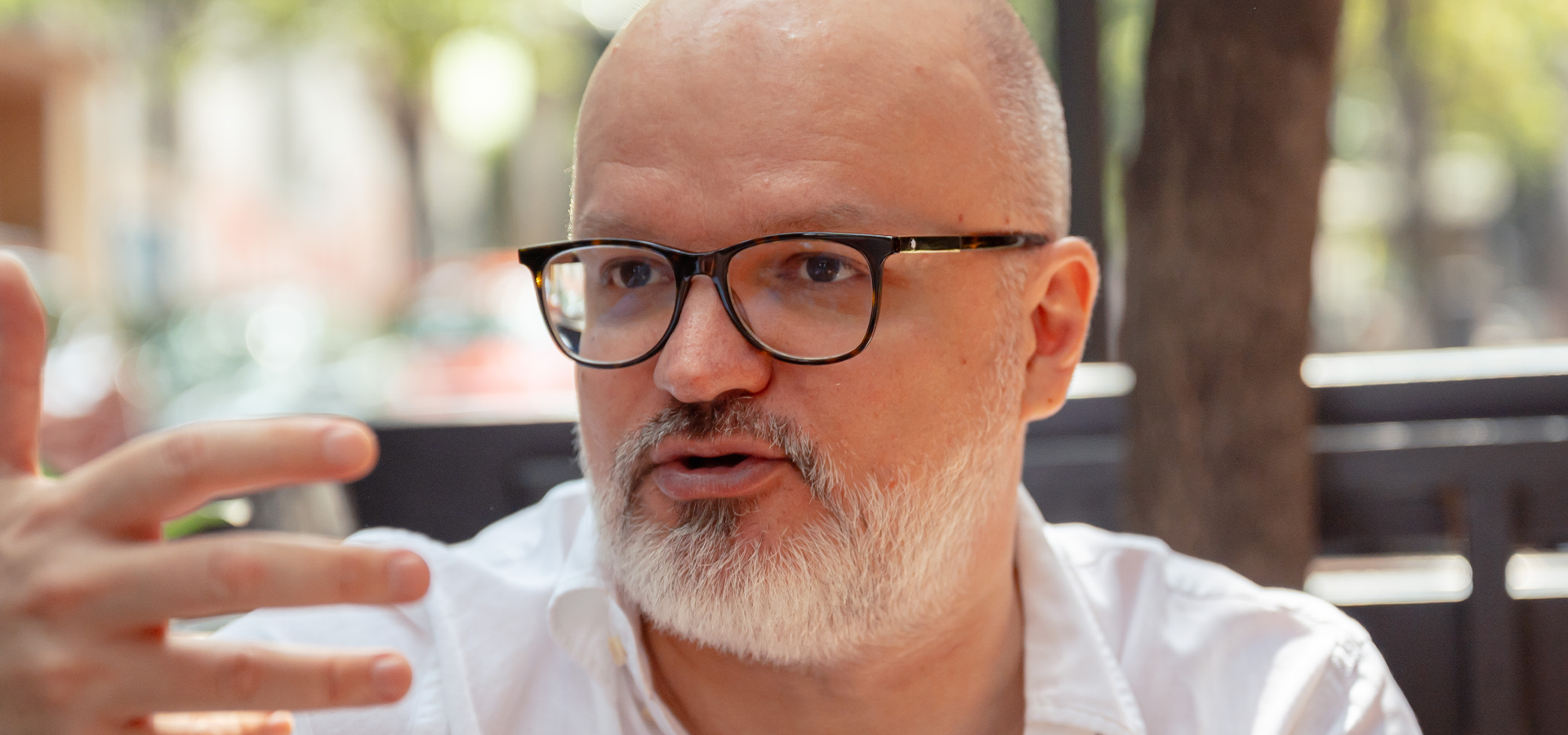Aleksandar Protić Prota: The city has become irrational, and yet inevitable
He strives to make our series and films sound divine, and you’ve probably seen his name in the credits. This former member of Beogradski Sindikat, who playfully calls himself a “collector of student ID cards,” is one of the few people outside the U.S. with voting rights for the prestigious Emmy TV award.
In an interview for 011info, Aleksandar Protić Prota reminisces about growing up in a priest's family in Karaburma and adopting values that still define him today. Prota also talks about his journey from a sound enthusiast to a post-production supervisor and announces two films, "Volja sinovljeva" and "Mudbrick," on which he worked as a producer, both set to premiere in domestic theaters this fall.
How do you remember your childhood?
I think the brain filters out only the beautiful memories and emotions that leave a strong impression, while factual details remain on the sidelines, which I believe is true for many. Like for people who, for instance, were on the front lines—they have scars to prove the pain, but the rational part of the brain suppresses that and leaves only pleasant memories.
I grew up in Karaburma, where my father was a priest. There were always a lot of relatives around our family house, who came to Belgrade for high school, university, work... It was always lively—many people in a small space. That taught me how to live collectively.
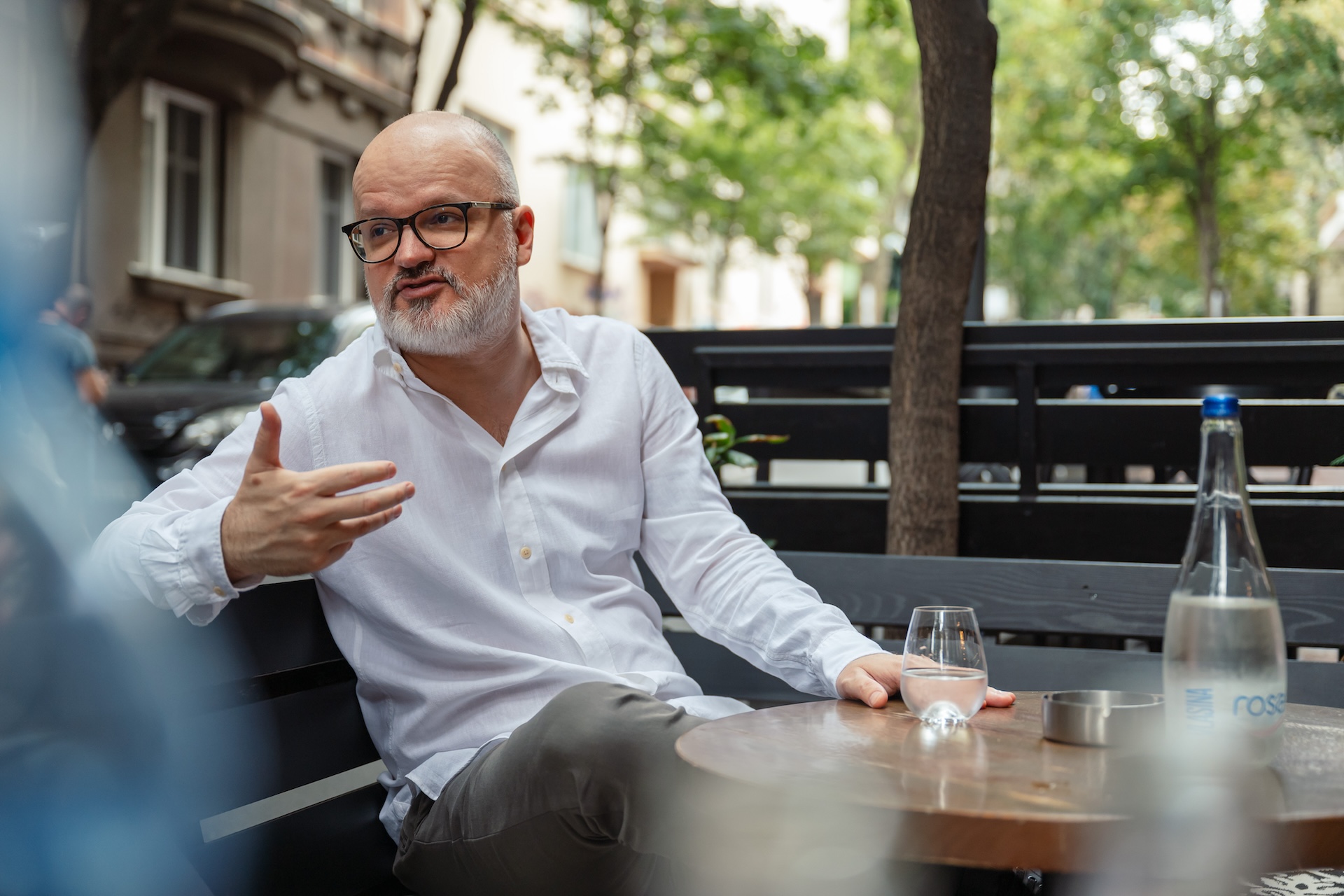
How different is the value system in a priest's family compared to "ordinary" families?
You know, in our family, there was never any preaching about values; everything was probably absorbed through examples and the environment. In our community, everyone took care of everyone else. And that becomes part of your daily life. Even today, I have people who care about me, and I care about them, despite the undoubtedly faster pace of life, especially for me, as I’m pulled in many directions.
What was life like in Karaburma back then?
It was a microcosm of its own. People lived in Karaburma and rarely left. If someone says otherwise, they were likely from a higher class and lived there by chance. I remember the cultural shock when I started attending the Mathematical Gymnasium in downtown Belgrade. It was my first real encounter with the city. It was like entering a different world—a completely different story, completely different people. It took me days to adjust.
Today, the question of the city's role is quite debatable. Hasn't it somewhat lost its purpose with the advent of remote work and cloud-based content? Initially, cities, when they also served as states, were formed out of a need for people to gather and defend against something. As polities evolved into states, cities lost their primary function and began focusing on secondary ones like trade and entertainment.
A city is, by nature, a dynamic phenomenon, but over time, it has lost its original qualities. I believe that citizens need to find within themselves a reason why they’re still there. So, the city has become somewhat illogical, yet still inevitable.
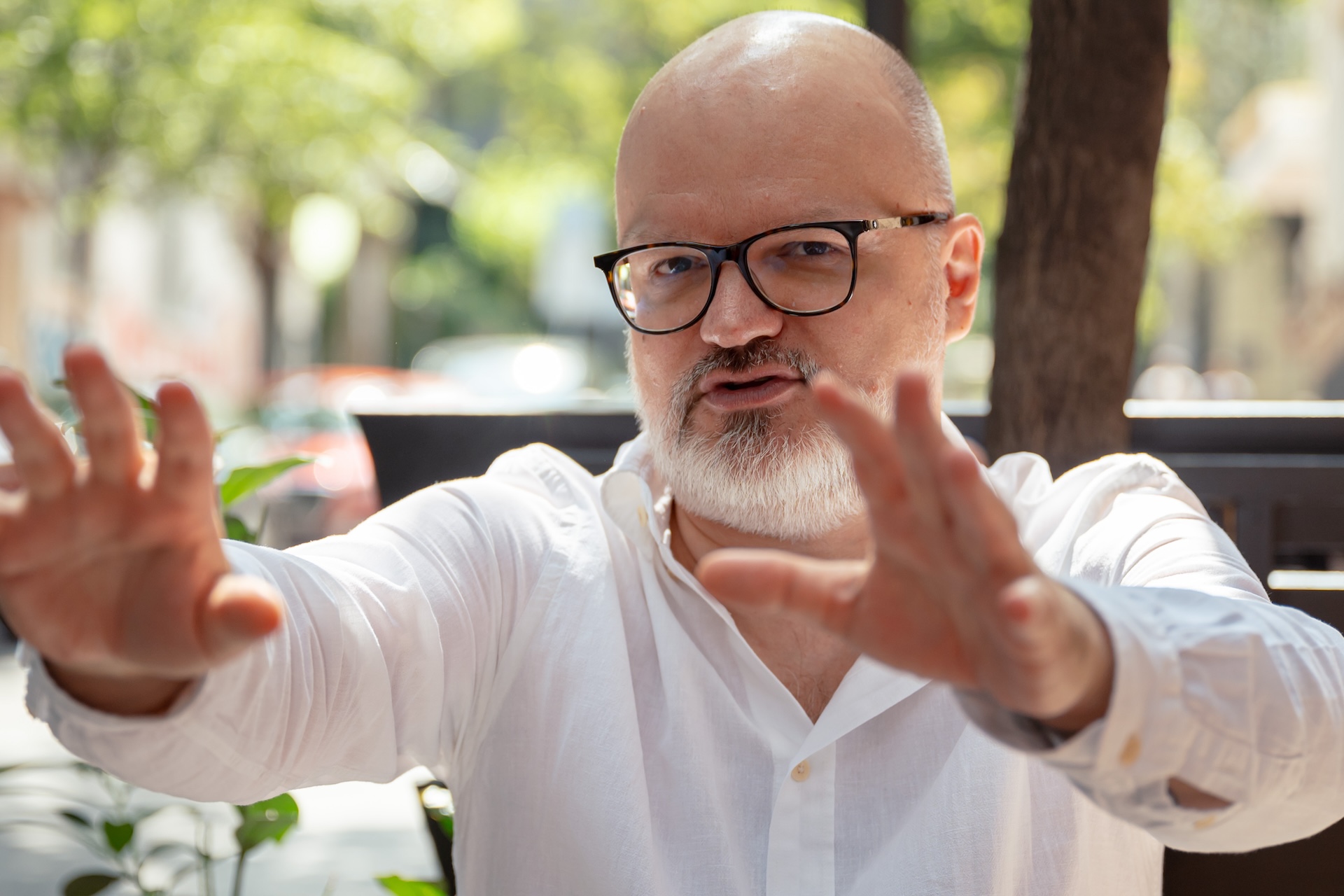
Where did your love for sound come from?
I think it was born from a combination of passion for music and computers. In the fifth grade, I started a band where I played the keyboard and a bit of guitar. It was more about gathering than actual playing. Later, there was another band in the style of Massive Attack, and then a thrash dance band in high school.
On the other hand, I had a Commodore 64, which had a four-channel tracker where you could have four tracks, and I was interested in that. However, when I got a PC at the end of my first or second year of high school (thanks to my dad’s mission and vision that I needed it for programming), with a fast tracker with 32 channels, I could do all sorts of things on it. The music I created was closely tied to technology—a mix of technical knowledge and music. I would put on headphones and not move for 8-9 hours.
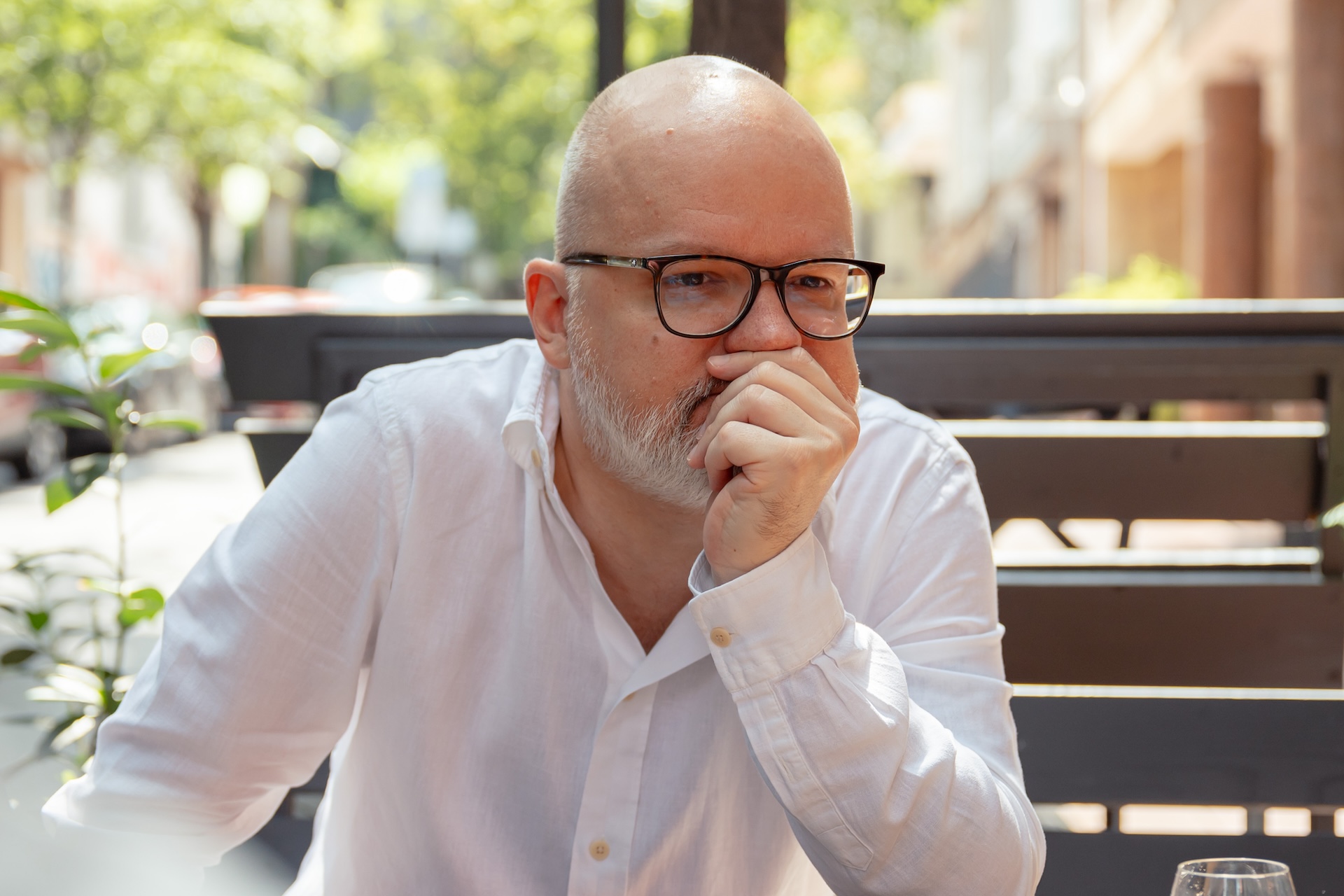
How did a kid from Karaburma end up having a say in something like the Emmy Awards?
Curiosity, in one word. I've been curious for as long as I can remember, but I never wanted to stop at just that—I always looked to try things out. That's how I got my first job in 1997, right after I turned 18 and missed out on the university I wanted to attend. I first volunteered at Radio Belgrade, and after two months, I got a paid job through a youth employment agency for a symbolic amount.
Although I don’t like to talk about it too much, it was that same curiosity that led me to Beogradski Sindikat. They were the opening act for Public Enemy at Hala sportova in 2003. I was in the audience that day, and by the next year (or two), I became a member of the group. As the saying goes, from fan to member!
The same goes for voting in the Emmys. First, I consumed content, then I created it, and finally, I got to have a say in the awards. These successes often seem like a given because, over time, you become a bit ungrateful, but they are certainly not trivial. But honestly, I don’t like to talk about it.
There's a lot of talk about the culture of success in the public space, but from a psychological standpoint, it’s actually about so-called survivorship bias. When people, from the outside, see someone who’s at the top, they think anyone can do it. Not at all. For example, how many unnoticed NBA players are there for every one who makes it, who end up on the streets?
I believe that when discussing success, failure must also be mentioned because they go hand in hand.
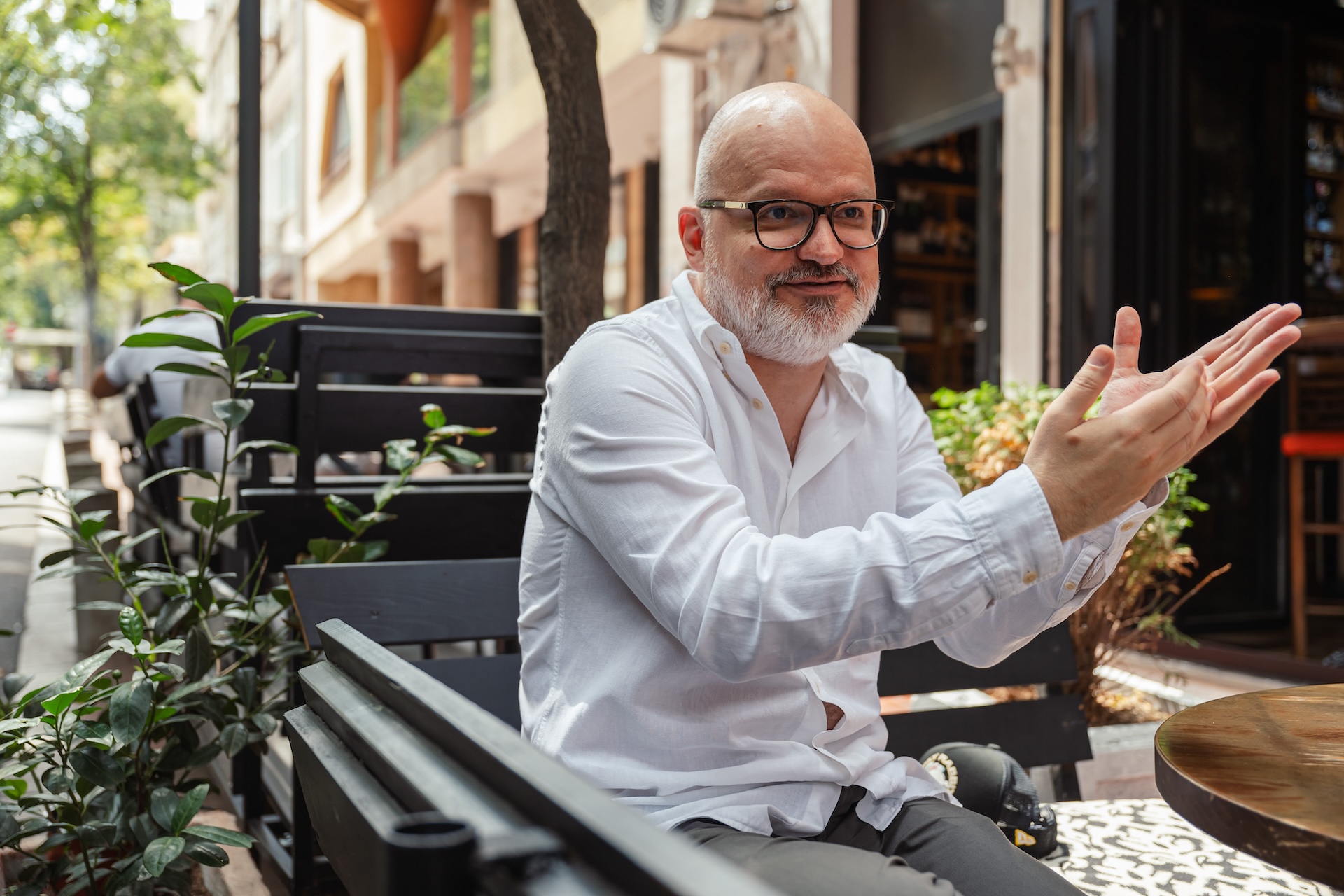
Although you say you didn’t enroll in your desired university at the time, you ultimately succeeded.
That’s right. In the meantime, I searched for myself a lot, as evidenced by the collection of student ID cards I own: from the Faculty of Mechanical Engineering, the Faculty of Mining and Geology, the Faculty of Dramatic Arts, the Academy of Diplomacy and Security, and the Faculty of Organizational Sciences, where I attended an MBA program.
I picked up something from each of these educational institutions. For example, at the Academy of Diplomacy, where I stayed the shortest time, I became interested in geoeconomics. Simply put, through that process of self-discovery, you gain experiences that ultimately shape you as a person. After all, life should be a learning process, right?
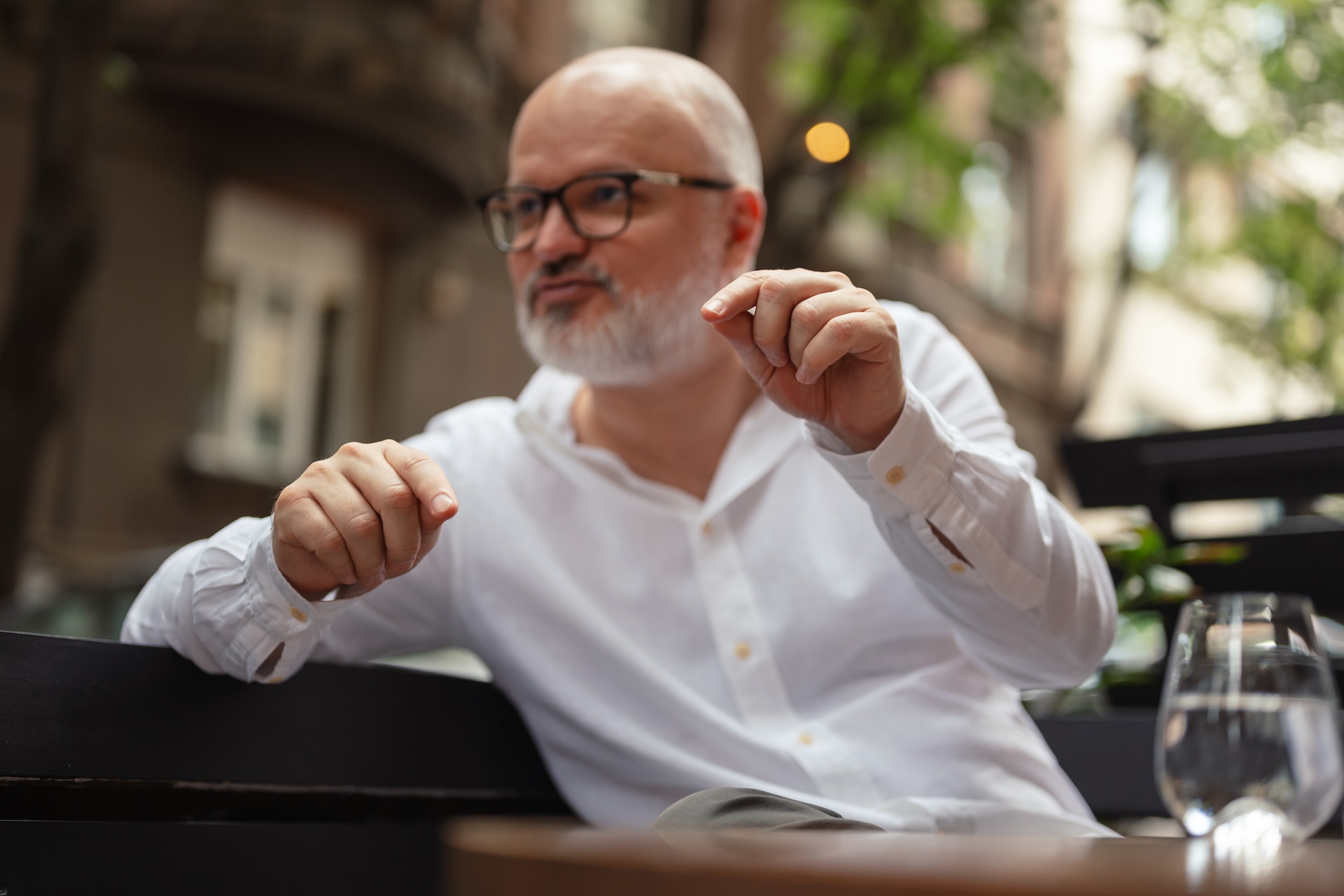
You’ve established yourself as a name in the audio world, and then you took on film production. How is that experience?
I opened myself up to a universe of big problems! Jokes aside, there are indeed serious challenges in film production because you’re trying to put something together that’s both artistically satisfying and meets all demands, all without sufficient financial resources. It’s basically an endless game with uncertain and unguaranteed outcomes because you’re never fully involved, nor can you be.
At the same time, the market is changing so rapidly today that by the time you start writing a script or shooting a film until the premiere, nothing is the same anymore.
At least once a week, I tell myself that I don’t need this in my life and that I won’t do it anymore, but at least three times a week, I think about new ideas. And that comes at a price. I paid that price less than a year ago when I had to sell my apartment to pay the collaborators from a series I produced. On the other hand, it happens that a film fails, the company goes bankrupt, and nothing—people who worked on it are left without money. That’s an unhealthy approach, and I didn’t want to do that. I don’t want to drag any "baggage" behind me because, as the saying goes, clear accounts, long friendship.
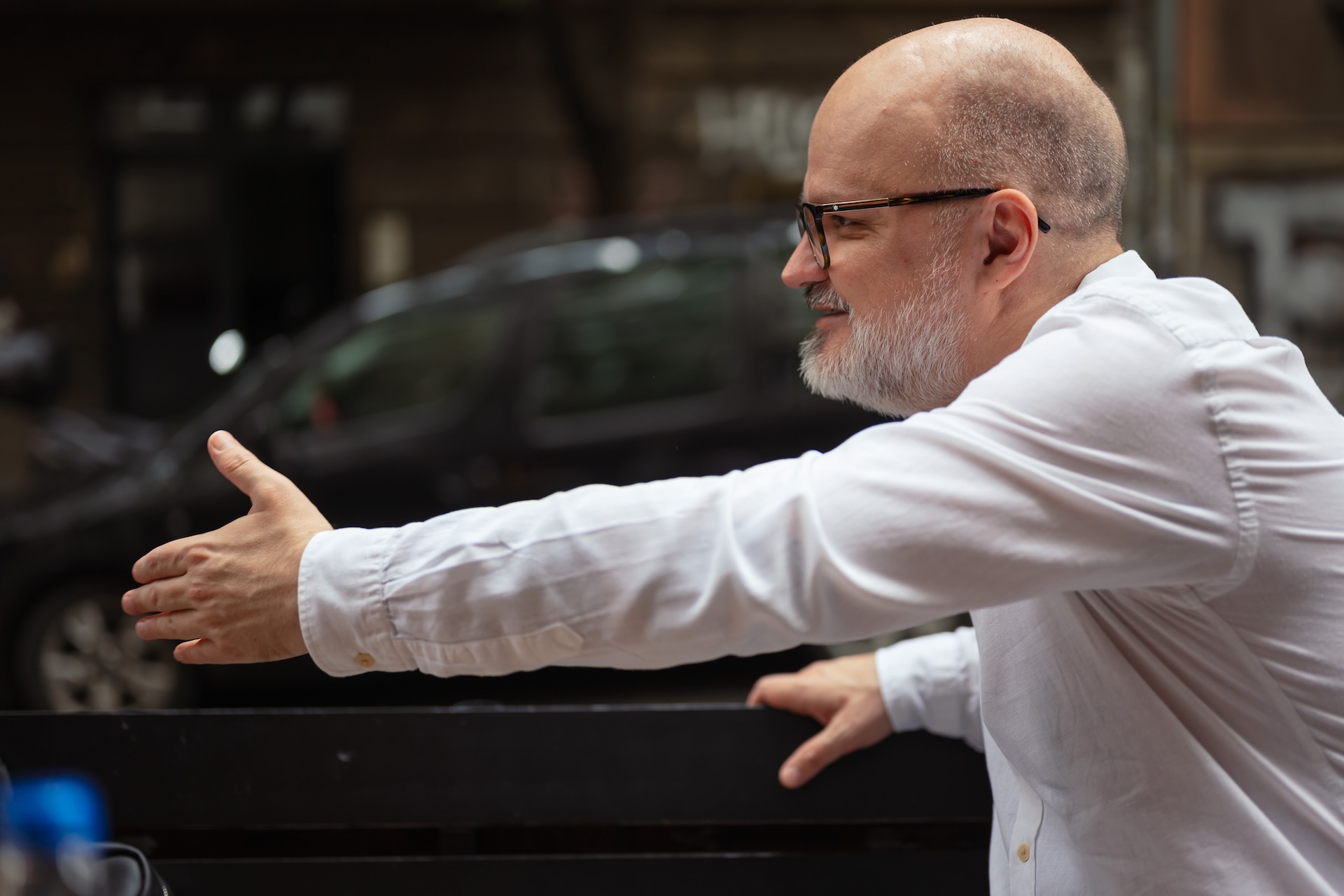
How much does luck play a role in career success?
It certainly plays a part. But you must be dedicated and prepared, with hard work and effort behind you, to take advantage of that lucky opportunity. Otherwise, if you’re unprepared when luck comes your way, it’s all for nothing.
So, when you hear that someone got lucky, be sure that behind it is serious work. This is best seen in sports, where you have many talented and hardworking athletes who got lucky. At the same time, there are countless others who got lucky, but you don’t know about them simply because they didn’t put in the maximum effort.
Take my example of working on Emir Kusturica’s film *Life is a Miracle.* Yes, I was lucky to be invited to work on his film, which was my first big job, but I believe it wouldn’t have happened if Professor Svetolik Mića Zajc hadn’t noticed me at university (I’m still grateful to him for calling me) and if I hadn’t made ten times more films than the required three during my studies. On the other hand, realistically, none of that would have happened if I had been accepted into the Faculty of Dramatic Arts on my first attempt, not the fourth. The film would have come at the "wrong time" for me. Things just fell into place, and then hard work intersected with good people and lucky circumstances.
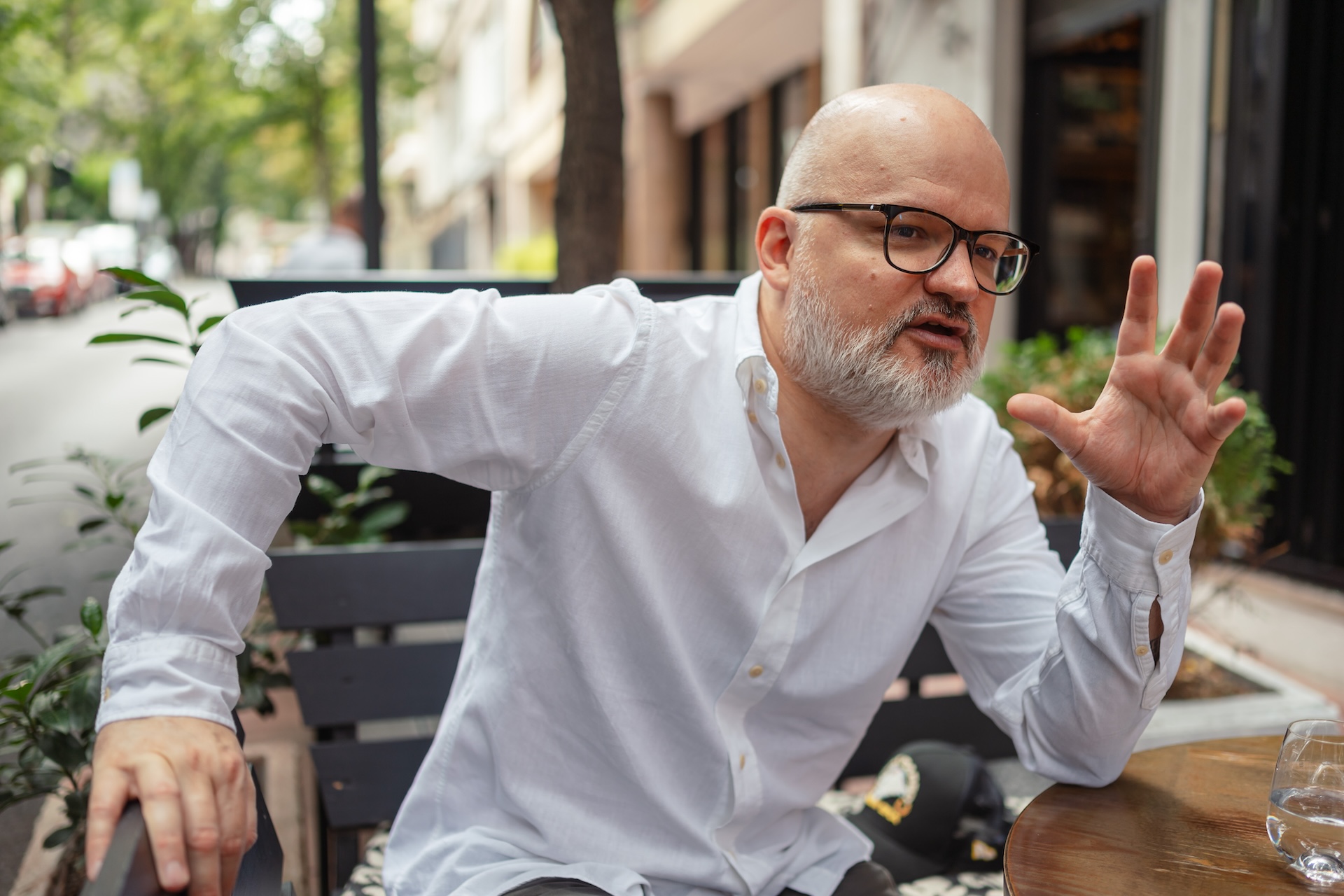
Those who closely follow your work know that constant changes occur in your career.
Absolutely. And what’s most interesting is that whenever those changes happen, I always keep a good part of the previous state. And that starts to border on human limits, especially since you can’t do a million things at once.
On the other hand, this isn’t the Renaissance period, where you have all the time in the world. No, this world demands speed, professionalism, and support. By support, I mean financial, technical, and logistical, which in a non-capitalist environment like Serbia, is still a far-off concept.
To be fair, there has been institutional support in recent years, but what I notice among my collaborators is that many still operate under the SFRY paradigm. And that’s not just typical for this region—far from it. That paradigm has spread across the planet. For example, 48% of Generation Z in America is still financially supported by their parents, which is almost unthinkable in that country.
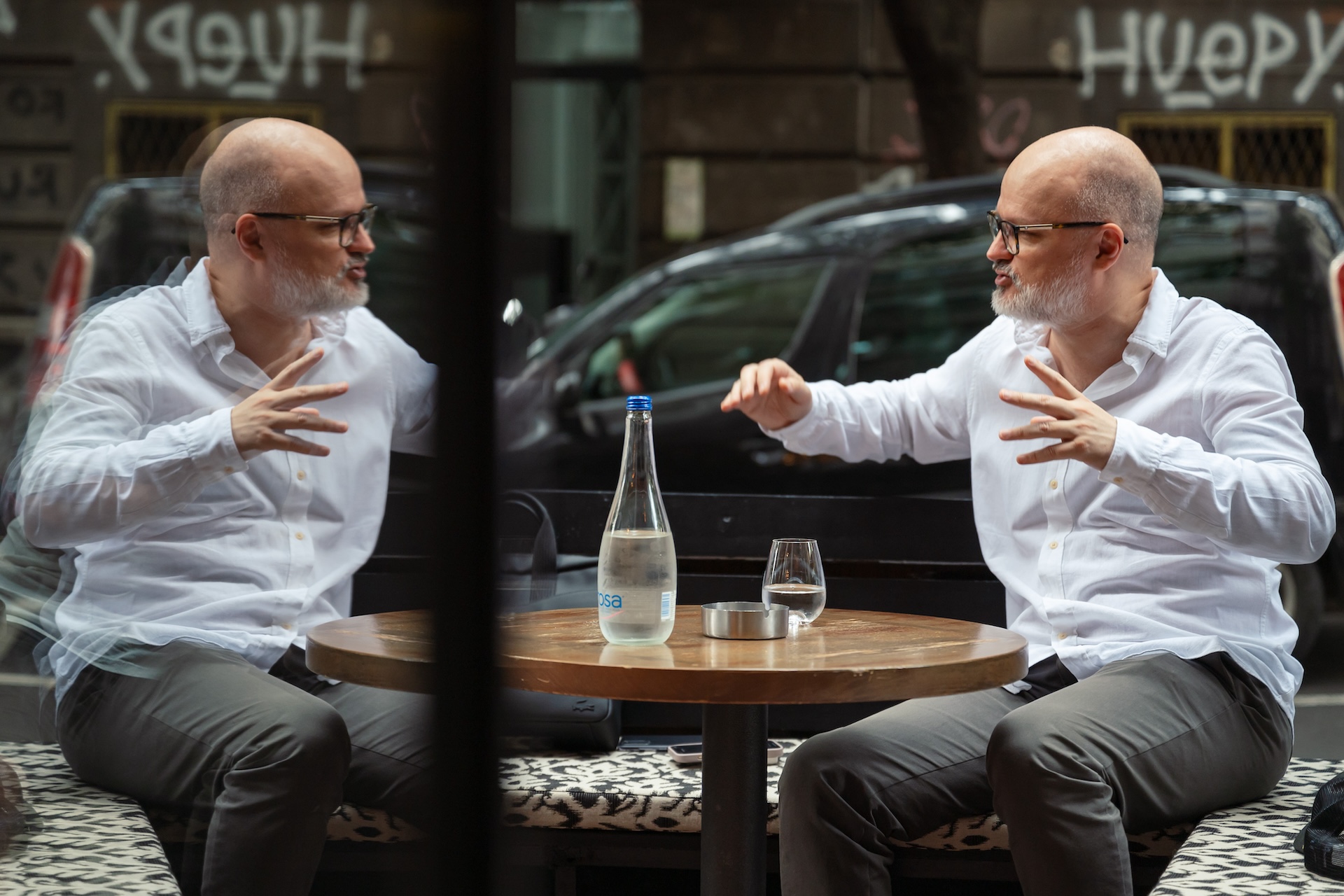
So, in a way, you’re a constant entrepreneur.
Exactly, that’s perhaps the best and most accurate description of me. I’m always taking on something, and I belong to a minority world. More and more, I hear people talking about finding “permanent employment.” I don’t think I could exist in that system because, at the end of the day, I love capitalism and think it’s good for us. It keeps us alert and ready at all times—there’s no complacency with it. The same can’t be said for other systems, where over time, you stop educating yourself and become interested in anything, and you just perform your role as a cog in a large system.
What are your future plans?
At the end of November, the film "Volja sinovljeva," which I co-produced with Miloš Avramović, who also directed and produced "Južni vetar," will be released in cinemas. It’s a dystopian film, at times reminiscent of "Mad Max," with plenty of action and combat scenes, almost samurai-like. I assure you, such a domestic film has never been seen on the big screen.
Around the same time, "Mudbrick" should also see the light of day. It’s a modest film with a completely different trajectory. It’s primarily funded by personal and investor funds, with minimal support from independent film production grants. A genre horror film, it’s a family drama based on a true story about brothers who had a Cain-and-Abel-like conflict over an estate. I won’t reveal more so as not to spoil the viewing experience for both the domestic and international audience, which will be able to see it thanks to the major distribution company Gravitas Ventures.




 12 ℃
12 ℃

